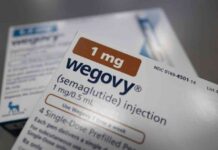The Food and Drug Administration (FDA) recently declined to approve MDMA-assisted therapy for the treatment of post-traumatic stress disorder (PTSD), citing insufficient data to support its use. The FDA requested additional clinical trials to assess the safety and effectiveness of the drug, also known as Ecstasy or molly.
This decision comes as a disappointment to many individuals who were hopeful for new treatments in the field of psychedelic medicine. If approved, MDMA would have been the first psychedelic compound to be regulated by federal health authorities. However, the FDA’s request for further research means that the approval process could be prolonged by years and require significant financial investment.
Supporters of psychedelic medicine, including best-selling author Michael Pollan, expressed their surprise and disappointment at the FDA’s decision. Many had believed that the promising data on MDMA therapy would outweigh any shortcomings in the company’s clinical trials. However, an independent panel of experts convened by the FDA raised concerns about the effectiveness and safety of the treatment, ultimately leading to the FDA’s decision.
Critics of the FDA’s decision have pointed out the lack of expertise in psychedelic medicine among the panel members, with only one out of eleven members having relevant experience. Despite this criticism, the FDA generally follows the recommendations of its expert panels in such cases.
The future of MDMA-assisted therapy for PTSD remains uncertain, pending the results of additional clinical trials. In the meantime, individuals and organizations in the field of psychedelic medicine will continue to advocate for further research and exploration of alternative treatment options for PTSD and other mental health conditions.

















